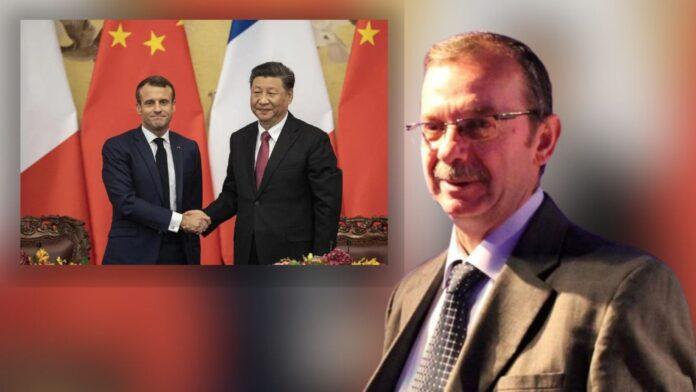By Artur Nura
Chinese President Xi Jinping delivered a video speech on Thursday (January 25) at a reception in Beijing organized to celebrate the 60th anniversary of the establishment of diplomatic relations between China and France. This speech, published on the website of the Chinese Foreign Ministry, was characterized by a multifaceted diplomatic language which guides the foreign policy of the Asian giant not only towards France, but also the European continent and the entire globe.
President Jinping remembers not by chance that the establishment of diplomatic relations between China and France coincided as a major event in the history of international relations while with political courage Chairman Mao Zedong and General Charles de Gaulle opened the door for exchanges and cooperation between China and the West, bringing hope for the world which was in the middle of the Cold War.
“During the past 60 years, China-France relations have always been at the forefront of China’s relations with Western countries, bringing benefits to both peoples and contributing to world peace, stability and development,” said Jinping, thus recognizing a France’s specific role within the European Union, which Beijing’s foreign policy prioritizes.
In fact, French President Emmanuel Macron who also delivered a video speech in honor of the anniversary of these diplomatic relations, with strategic elegance seems to welcome this strategic approach of the Chinese counterpart to France as he confirmed that 60 years ago, General Charles de Gaulle came out beyond the logic of confrontation in the camp and took the historic decision to establish diplomatic relations with the People’s Republic of China.
“Today, both sides have a responsibility to build on the ambitious goals set in 1964 and continue to work together to build a partnership that not only meets the needs of the two peoples, but also contributes to world peace and stability.” – Macron added while referring to today’s geopolitics similar to that of 1964.
“Both sides should unswervingly develop bilateral relations and respond to world uncertainties with the stability of China-France relations.” – President Xi defined in his speech, hinting to his French counterpart, that they have similar leadership responsibilities today as 60 years ago.
“Facing the next 60 years, China and France will work together to create greater glories,” Jinpig added, and called on both sides to jointly defend an equitable and orderly multipolar world and economic globalization that is inclusive and beneficial to all, and continue to contribute to maintaining world peace and stability and addressing global challenges.
For his part, President Macron not by chance said that France is ready to shake hands with China to address global challenges and promote the resolution of international crises.
Noting that 2024 is the France-China Year of Culture and Tourism and the two sides will hold a series of activities, Macron said the two sides should use this opportunity to increase exchanges between the two peoples, especially young people, and lay a stronger foundation for the future of France-China relations.
According to the Chinese Foreign Ministry website, the two countries will also hold an event to celebrate the 60th anniversary of the establishment of diplomatic relations and the opening of the Year of Cultural Tourism at the Palace of Versailles in Paris on January 31, and will broadcast video speeches by the two heads of state and, this Franco-Chinese geopolitical development, in principle, will be received with great positivity in the corridors of the European Union in Brussels.
Here we can recall the meeting on December 7, 2023 of President Xi Jinping with the President of the European Council Charles Michel and the President of the European Commission Ursula von der Leyen in Beijing within the framework of the 24th China-EU Summit.
In this meeting, it was underlined by both sides that recently China-EU relations have shown a good moment of consolidation and growth in the strategic, economic and trade, green and digital fields and have produced rich results.
In fact, the convictions that China and the EU are two major forces advancing multipolarity, two major markets supporting globalization, and two great civilizations protecting global diversity are felt and accepted both in Beijing and Brussels, but why not, also in Paris and Berlin.
Amid the increasingly turbulent international situation, the China-EU relationship has strategic importance and influence for global peace, stability and prosperity, and it is the duty of both sides to provide greater cooperation to the world and stronger impetus for more prosperous development and peaceful.
The EU appears prepared to increase communication and understanding with China in a mutually respectful, open and frank spirit on issues where they disagree. The European Union and China have shared responsibilities and interests to keep the world peaceful and stable.
Naturally, Brussels wants to have close communication and coordination with China, uphold multilateralism and the goals and principles of the UN Charter, and work to resolve regional hot spots, including Ukraine and the Middle East.
This political will is strengthened even more when the polls in the United States of America also predict a possible return of Donald Trump as President of the USA, whose philosophy is internationally recognized as “America First…”/CRI.CN












